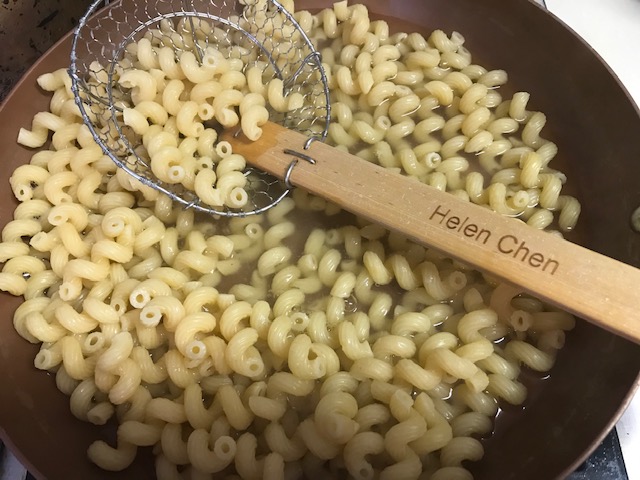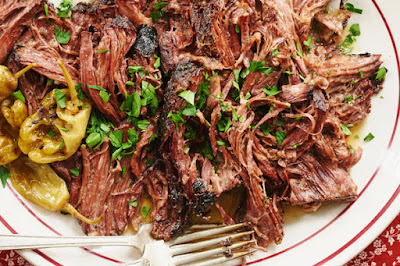Cold Water Pasta
No doubt after reading the title your sainted Nonni is crying salty teats into her antique pasta pot.
In the cupboards under my stovetop island, there's a large traditional stockpot, a red copper pasta pot with strainer lid (as seen on TV), and the microwave Fasta Pasta cooker. The way I cook pasta, I suppose one could say it depends on my mood. Then there is my large saute pan...
In the past there have been evenings coming home late from work, haven't eaten all day, and too tired to cook anything that was time consuming. Therefore, if a saute pan was already on the stove or the first pan in my sight, I used it - - and here I thought I was being lazy until Alton Brown, television personality, chef, author, and food scientist vindicated me.
One evening while watching Alton Brown's Good Eats, Reloaded, I was delighted to view his revised method of cooking pasta, and as Brown explained, he may be "blocked from ever entering Italy again for saying this: I have come to prefer the texture of dry pasta started in cold water."
The benefit of cooking "cold water" pasta? Less energy to cook saving time and heat. Leaves a more starchy water after cooking which is perfect to add to your sauces giving them a creamier texture.
 |
| A pan of cavatappi ready for the sauce. |
Join me in cooking a pan of cold water pasta.
1. Drop the desired dry pasta in a pan, even a deep saute pan. A wide, but deep saute pan works excellent for long noodles like spaghetti or linguine.
2. Cover the pasta with cold water.
3. Set burner for medium-high heat.
4. Now Brown doesn't mention this, but I don't add the desired amount of salt until the water comes to a boil. I don't want the salt to just sit at the bottom.
5. When water comes to a boil, decrease to a simmer. Stir and cook the pasta about 4 - 5 minutes or to your tooth, depending on the design and thickness of the noodle.
6. Strain with a metal spider strainer instead of draining the pasta water into the sink so the starchy water can be saved for sauces. Recently I read some cooks freeze the extra starchy cooled water in ice cube form for later use in thickening soups and other sauces. Brilliant!
Suggested wine pairing? Whatever you want.


Comments
Post a Comment